Английский язык для специальных и академических целей: Международные отношения и зарубежное регионоведение. Часть 1 - [7]
In short, what the British Empire proved is that empire is a form of international government that can work — and not just for the benefit of the ruling power. It sought to globalise not just an economic but a legal and ultimately a political system too.
Speak Up
Richard Gott on the legacy of the British Empire http://www.youtube.com/watch?v=_KvR0pTZvGQ&index=4&list=PL6D312E28AF131F80
Slaughter — to kill (people or animals) in a cruel or violent way, typically in large numbers Indigenous — native
Conscript (army) (adj) — enrolled compulsorily, drafted
To put down — to use force to stop a protest or an attempt by people to take power away from a government or leader
Subject (peoples) (adj) — being under the power or sovereignty of a ruler, government Proselytize — to induce someone to convert to one's faith
Straitjacket — something that limits someone's freedom to do something
Unit I. UK: from Empire to Democracy
1. What, in Richard Gott's opinion, should the British Empire be blamed for?
Unit I. UK: from Empire to Democracy
2. In what ways was the British Empire violent?
3. What facts and statistics does Richard Gott support his arguments with?
1. How would you define a democracy?
2. What are the types of democratic government in the modern world?
3. What are the main features of Britain's democracy?
4. Based on the title, do you expect the article to focus on the strengths or deficiencies of Britain's democracy?
Professor Stein Ringen University of Oxford February 2007
The answer to this question is: not very good! Of course Britain is a democracy and a solid one, but there are many solid democracies and in this family British democracy is of only mediocre quality.
In my book What Democracy Is For I rank twenty-five of the most respected democracies in the world according to their quality on a scale from 8 (high quality) to 0 (low quality). In that ranking, Britain is on level 3. The best quality of democracy is found in some of the smaller countries with political cultures of egalitarianism, such as in Scandinavia (Norway and Sweden are on level 8 and Iceland on level 7). In Europe, Italy ranks the lowest, on level 0, and France and Germany are on level 3 and 4 respectively. The two great model democracies, those of the British Westminster model and of the United States with its pioneering democratic constitution are both in the bottom range of the ranking.
This is not where British democracy should stand or be expected to stand. The Westminster Model has very much going for it. It is embedded in an ancient and firm culture of liberty. It has evolved organically out of British history and experience and was never invented or imposed. Parliament is a model of careful and pragmatic deliberation. The press is robustly free and radio and television of the best anywhere, including in political scrutiny. Governance is stable, effective and by and large honest.
We should therefore expect British democracy to compare favourably with democracy anywhere else. In fact, however, it does not. Among the world's solid democracies, Britain compares unfavourably. In spite of all it has going for it, it turns out to compare badly in democratic quality.
My concern here is neither with non-democracy nor with weak and second-rate democracies. I am interested in the solidly established democracies and with differences in quality within this exclusive family. I can therefore take some things for granted that I do not have to bring into my comparisons, principally that civil and political rights are established. Even in this the solid democracies are not fully equal but the differences are marginal. In Britain these rights are certainly enshrined in the political and social order and there is no need to question the system on this account. That is very much part of what British democracy has going for it.
However, freedom depends on more than civil and politic rights. It is now widely recognised in political philosophy that values such as freedom and justice rest not exclusively on rights but also on the means to make effective use of rights. For freedom, rights are basic but in addition the individual needs to be in command of a modicum of physical and human capital to be able to live as the master of his or her life. The protection of freedom, then, is a complicated matter of good government. Citizens depend on governance for the effective protection of liberty and rights, for the regulation of economic and social life for equality of opportunity, and for protection against at least extreme deprivations in the resources of freedom. While in all solid democracies citizens enjoy basic civil and political rights, there is a great deal of difference between them in the effectiveness of governance measured against the modern understanding of freedom.
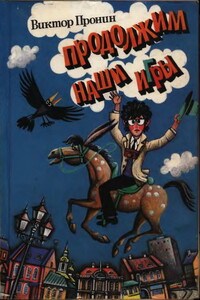
Виктор Пронин пишет о героях, которые решают острые нравственные проблемы. В конфликтных ситуациях им приходится делать выбор между добром и злом, отстаивать свои убеждения или изменять им — тогда человек неизбежно теряет многое.
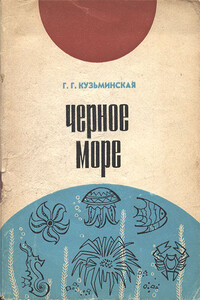
В этой книге океанограф, кандидат географических наук Г. Г. Кузьминская рассказывает о жизни самого теплого нашего моря. Вы познакомитесь с историей Черного моря, узнаете, как возникло оно, почему море соленое, прочтете о климате моря и влиянии его на прибрежные районы, о благотворном действии морской воды на организм человека, о том, за счет чего пополняются воды Черного моря и куда они уходят, о многообразии животного и растительного мира моря. Книга рассчитана на широкий круг читателей.
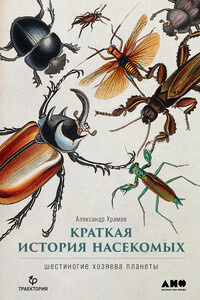
«Любая история, в том числе история развития жизни на Земле, – это замысловатое переплетение причин и следствий. Убери что-то одно, и все остальное изменится до неузнаваемости» – с этих слов и знаменитого примера с бабочкой из рассказа Рэя Брэдбери палеоэнтомолог Александр Храмов начинает свой удивительный рассказ о шестиногих хозяевах планеты. Мы отмахиваемся от мух и комаров, сражаемся с тараканами, обходим стороной муравейники, что уж говорить о вшах! Только не будь вшей, человек остался бы волосатым, как шимпанзе.

Настоящая монография посвящена изучению системы исторического образования и исторической науки в рамках сибирского научно-образовательного комплекса второй половины 1920-х – первой половины 1950-х гг. Период сталинизма в истории нашей страны характеризуется определенной дихотомией. С одной стороны, это время диктатуры коммунистической партии во всех сферах жизни советского общества, политических репрессий и идеологических кампаний. С другой стороны, именно в эти годы были заложены базовые институциональные основы развития исторического образования, исторической науки, принципов взаимоотношения исторического сообщества с государством, которые определили это развитие на десятилетия вперед, в том числе сохранившись во многих чертах и до сегодняшнего времени.
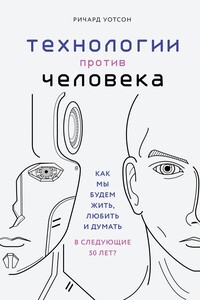
Эксперты пророчат, что следующие 50 лет будут определяться взаимоотношениями людей и технологий. Грядущие изобретения, несомненно, изменят нашу жизнь, вопрос состоит в том, до какой степени? Чего мы ждем от новых технологий и что хотим получить с их помощью? Как они изменят сферу медиа, экономику, здравоохранение, образование и нашу повседневную жизнь в целом? Ричард Уотсон призывает задуматься о современном обществе и представить, какой мир мы хотим создать в будущем. Он доступно и интересно исследует возможное влияние технологий на все сферы нашей жизни.
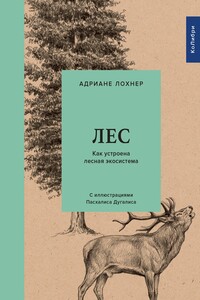
Что такое, в сущности, лес, откуда у людей с ним такая тесная связь? Для человека это не просто источник сырья или зеленый фитнес-центр – лес может стать местом духовных исканий, служить исцелению и просвещению. Биолог, эколог и журналист Адриане Лохнер рассматривает лес с культурно-исторической и с научной точек зрения. Вы узнаете, как устроена лесная экосистема, познакомитесь с различными типами леса, характеризующимися по составу видов деревьев и по условиям окружающей среды, а также с видами лесопользования и с некоторыми аспектами охраны лесов. «Когда видишь зеленые вершины холмов, которые волнами катятся до горизонта, вдруг охватывает оптимизм.